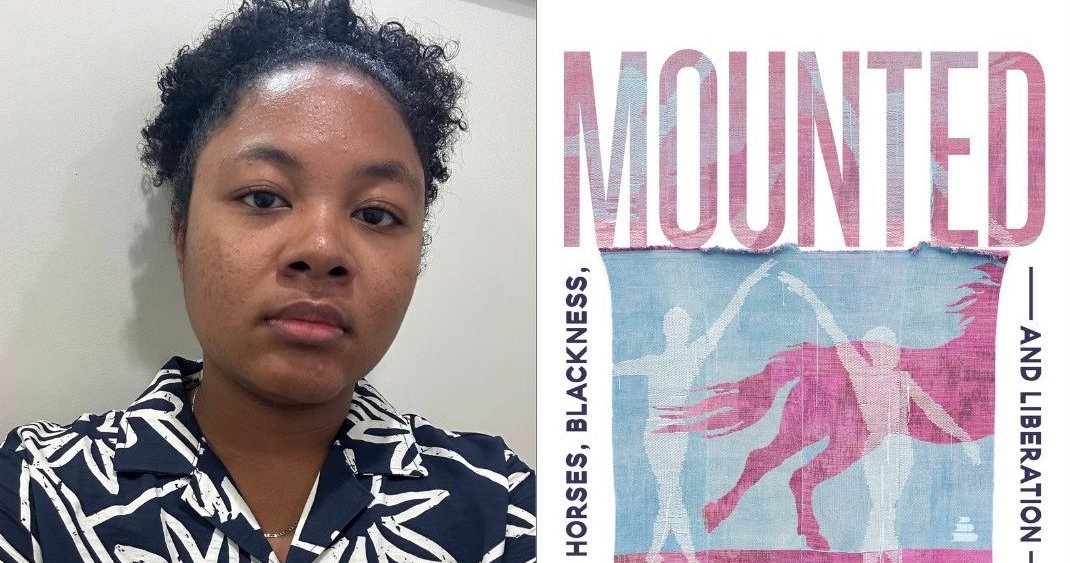Author Bitter Kalli first found their love of horses in “pony books” – fictional texts for youth, such “Misty of Chincoteague” and “The Saddle Club,” where the animals are key parts of the narrative. But the Brooklyn native had their first real encounter while walking through that borough’s Prospect Park neighborhood with their mom, which eventually led to riding at Kensington Stables.
“(Riding) sounds cute in a book, but when you’re actually standing in the mud with a horse or trying to ride a horse with traffic and a billion noises going off in the background, it definitely shows you the reality of riding horses in the city, which is often pretty challenging and not pretty,” said Kalli, who went on to ride in both high school and college. “But it always felt really fulfilling to me.”
Now a West Philly resident and founder of urban farm and seed saving project Star Apple Nursery, Kalli doesn’t ride any more, although they do volunteer at Fletcher Street Urban Riding Club. But horses are still part of their life, and the center of their new book, “Mounted,” set for release on Aug. 19. In it, Kalli explores the connection between Blackness and horses in a series of critical essays on art, history and pop culture.
As a child, riding showed Kalli a different way of relating to the living world, creating a kinship with the creatures and giving them confidence to safely interact with such huge and powerful animals. But as an adult, their feelings grew more conflicted, especially with the widespread protests against police brutality in 2014, where mounted officers were sent to control crowds.
“As I grew older and learned more about the really complex ways that horses have been used in our society as tools of violence, specifically against Black people and other marginalized people, there was always this tension for me between this sport and this practice that I loved, and also knowing that there were really deep histories of violence and oppression that were embedded within that,” Kalli said.
In “Mounted,” Kalli explores those ideas, including how horses were intertwined with movements from Black and Brown people against colonialism and white supremacy but were also used to capture escaped slaves. Other essays are cultural criticisms on equestrian-themed movies and art, such as “The Harder They Fall” and Tschabalala Self’s “Horse,” plus Kalli’s own experiences.
In modern day, many marginalized communities continue to be criminalized for having horses, Kalli said, including instances of felony charges for keeping them in backyards, although active resistance to preserve the relationship continues. The animals also continue showing up in art and pop culture, including Beyoncé’s “Cowboy Carter” album and Lil Nas X’s “Old Town Road,” both of which are also covered in the book.
Although they don’t hold the same prominence they once did, Kalli said that horses continue to play a crucial role in the fabric of everyday life.
“They continue to be a really important part of the cultural fabric, and I think that is a kind of labor in itself that a lot of horse riders are doing right now, the work of archiving history, of keeping communities alive through educational programs and various programs that help kids in the city connect to horses,” Kalli said. “So definitely different forms of labor, different forms of work, different forms of memory-keeping, as well.”

